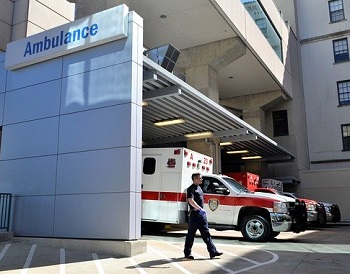T/TAS News and Updates
Health Experts Urge Medical Care During Pandemic
- T/TAS at WKU
- Monday, July 6th, 2020

Several months into the coronavirus pandemic, a disturbing trend is coming to light: emergency room visits from non-COVID-related causes have dramatically decreased. COVID-19 has kept us physically away from many things, but doctors are urging people to seek in-person medical care in the event of an emergency and for critical issues.
Between March 15 and May 23, visits to hospital emergency departments declined 23 percent for heart attacks, 20 percent for strokes and 10 percent for high-blood-sugar crises — a complication of diabetes — when compared with the previous 10 weeks, according to a report published June 26, 2020 by the Centers for Disease Control and Prevention.
As part of Head Start program’s family support services for health, nutrition, and mental health (HS Program Performance Standards 1302.46), local programs may need to address this issue upon intake and periodically throughout the program year. In addition to educating families on the importance of continuing preventive healthcare visits for children during the pandemic, it may be helpful to provide education to families about when they should seek emergency treatment and medical care for ongoing critical health concerns.
According to Dr. Keerthy Krishnamani, president of the Michigan Academy of Family Physicians, and Dr. Sharon Swindell, president of the Michigan Chapter of the American Academy of Pediatrics in a recent Detroit Free Press article, examples of critical health care that should not be postponed include:
- Treatment for chronic conditions, such as asthma, diabetes, and kidney disease
- Treatment for acute conditions, such as symptoms of heart attack and stroke
- Treatment for severe injuries, such as broken bones and deep cuts
- Mental health needs, such as depression, anxiety, and suicidal thoughts
- Pediatric immunizations that protect children from communicable diseases
- Prenatal care for pregnant mothers
To reduce families’ fears, education should also be provided on how COVID-19 spreads and how families can keep themselves safe in the community. The Centers for Disease Control (CDC) website of printable COVID-19 educational resources can be found here. In addition to health education, Head Start programs should also determine if families have access to necessary health and safety supplies and connect them with needed resources.
If you have questions, feel free to contact us: ttas.info@wku.edu or 800.882.7482
_________________________
J. Christopher Watkins, Executive Director
Training & Technical Assistance Services (T/TAS)
Western Kentucky University
800.882.7482
www.ttas.org
ttas.info@wku.edu
Advancing knowledge within early learning communities
Some of the links on this page may require additional software to view.
